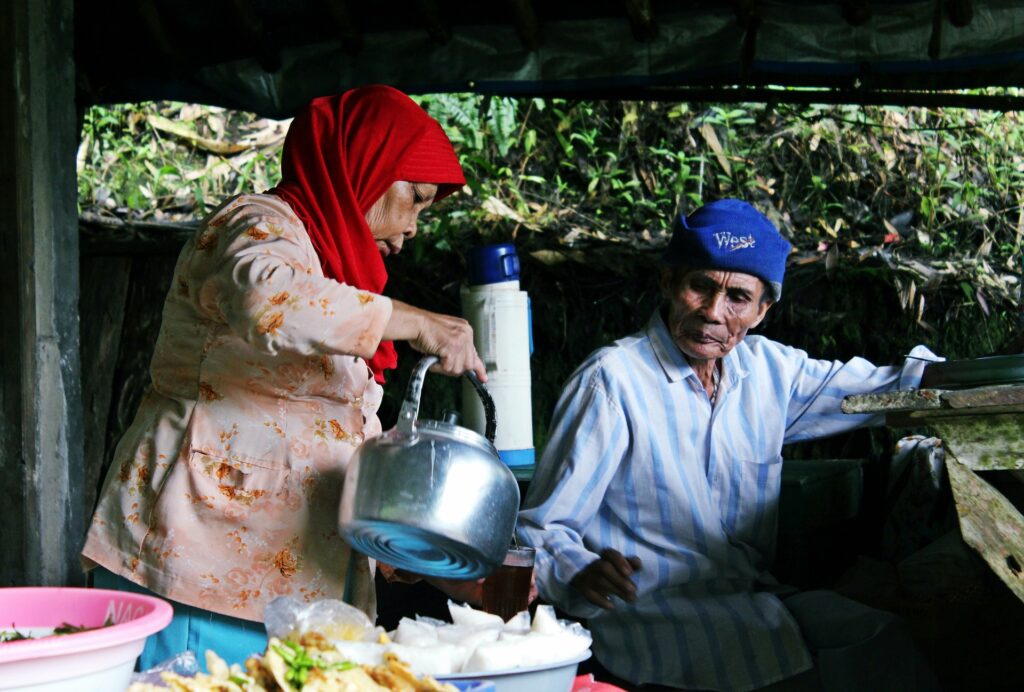The fast pace of population aging presents serious challenges to governments in low- and middle-income countries (LMICs). These countries are essentially growing old before they grow rich, leading to a policy conundrum: how to provide financial and health security to the old without breaking the bank.
One approach currently used in a number of LMICs, including Argentina, Bolivia, Bangladesh, Namibia, Nepal and others, is that of direct income supplementation to the elderly poor. While evidence is mounting on the positive impacts of unconditional cash transfers to the poor on a number of outcomes, not as much attention has been paid so far to how we can use this approach to alleviate the pressures of rapid population aging in low- and middle-income settings. Specifically the health and wellbeing effects of this policy have not been systematically explored. Recently we (Emma Aguila, Price School, USC; Arie Kapteyn, CESR; James P. Smith, RAND Corporation) completed a study that provides important new insights into the impact of income support to the elderly poor in LMIC settings.
The study took advantage of a new policy being considered by the government of Yucatan, a Mexican state. The Yucatan government was interested in introducing a noncontributory pension supplement to people over the age of 70, which would bring up by 44% the average household income of the elderly receiving benefits. The program would be implemented first in urban settings, with the city of Valladolid chosen as the first treatment location. The research team and the Yucatan government jointly chose Motul as the control city due to its socio-demographic similarities to Valladolid. A baseline survey of elderly adults was conducted in both cities, with a follow-up six months after the start of the pension supplement program.
Results of our analysis indicate that the income supplement had a positive effect on many health dimensions that are especially amenable to change in the short term. We found a statistically significant reduction in low hemoglobin levels, commonly associated with fatigue, even within three months from the start of the program. Memory and breathing were also positively affected.
We also found other health and wellbeing impacts. Food availability was improved, the amount spent on food increased, and labor force participation among those older than 70 decreased. More individuals reported paying for their own out-of-pocket health expenses, and a lower proportion reported relatives paying for these expenses. Overall, more individuals reported spending their cash supplement on food, visits to the doctor, and buying medicines.
The changes, observed in a relatively short period, may be specific to this population, which lives close to subsistence, and often forgoes spending on healthcare needs such as medication. It may also be related to the advanced age of the people in our sample, who have many current health problems that were not dealt with before the income supplement enabled them to.
A concern that is often expressed by policy-makers and analysts with regards to income supplements is that it may crowd out investments in or transfers to the elderly from their relatives. While we do find some reduction in the families’ transfers to their elderly relatives receiving the income supplement, on average the reduction was only 201 pesos per month, compared with the 550 pesos received by the beneficiaries of the program.
The findings from this study are encouraging. While we cannot know at this point whether our results can be generalized to other LMICs, or whether the effects would be different if the program was implemented on a different scale (in rural areas, statewide, or nationally, for instance), the study presents a useful model for future research in this field. We hope to see more experimental research that will advance the global conversation on what works to ameliorate the pressures of population aging in resource-poor settings.
